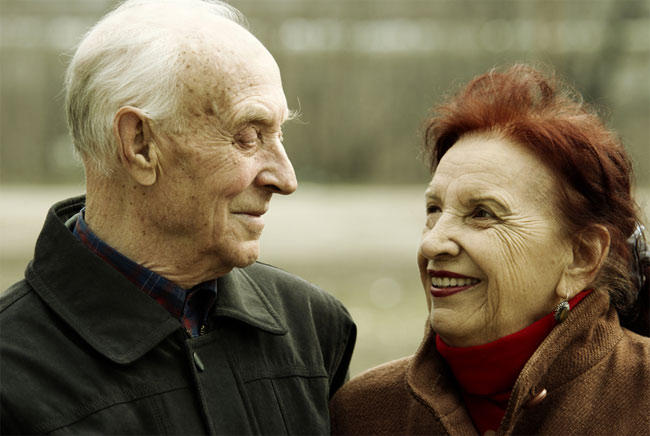Old People Feel 13 Years Younger Than They Are

Older people tend to feel about 13 years younger than their chronological age, a new study finds.
The seniors in the study, all 70 and over, also thought they looked about 10 years younger than their numerical age, with women perceiving their appearances to be closer to their actual age than men.
"People generally felt quite a bit younger than they actually were, and they also showed relatively high levels of satisfaction with aging over the time period studied," said researcher Jacqui Smith, a psychologist at the University of Michigan Institute for Social Research.
She added, "Perhaps feeling about 13 years younger is an optimal illusion in old age."
The results, which will be published in a forthcoming issue of the Journals of Gerontology: Psychological Science, have implications beyond the psychological. Past research has shown that feeling youthful is linked with better health and longer life, the researchers say.
Spring chickens
Smith and her colleagues analyzed information collected from surveys of 516 men and women age 70 and older who participated in the Berlin Aging Study. The survey tracked how seniors' perceptions about age and their satisfaction with aging changed over a six-year period ending in 1998.
Sign up for the Live Science daily newsletter now
Get the world’s most fascinating discoveries delivered straight to your inbox.
(Even though the study was conducted on Berlin residents, Smith said the same results should apply to Americans. And in fact her recent research on Americans is showing similar results.)
Some of the oldest participants actually felt even younger than the average delightful self-deception in the study. This could be due to the fact that individuals on the older side, say 85, experienced less overall decline with age. And that's why they survived, while their 70-year-old counterparts perhaps didn't have so much longer to live.
Those in poor health reported a smaller gap between how old they felt and their actual ages.
"The way that we feel about our age is in part a reflection of the message we are getting from society about what people our age ought to be doing," Smith told Livescience, "and it's also an indication about how we interpret our biological aging to be."
Lookin' good
The researchers also assessed how old people thought they looked by asking, "How old do you feel when you look at yourself in a mirror?" Participants indicated an age on a scale that ranged from 0 to 120 years.
At the start of the study, the seniors said they looked on average 10 years younger than their actual age and about seven years younger by the end of the study.
In general, women perceived their appearance as being closer to their actual age.
"Women saw themselves as about four years older than their male peers," Smith said. "There are several likely reasons for this gender gap in subjective physical age. One is that women may be more aware of their appearance than men, especially given the negative stereotypes of older bodies."
Another possible reason for the gender difference is that men typically die at a younger age compared with women. So the oldest men would've been in the best physical shape to live so long.
"Those men who live for a very long time are the fittest men, so they're usually much stronger than the women physically, and they may actually look better than many 80-year-old women physically," Smith said.
Participants also rated the extent to which they agreed with statements about satisfaction with aging. Results showed that initially, men were more satisfied than women with their own aging. But over the six-year period, men's satisfaction decreased more than women's did. Poor health magnified these patterns, Smith said.
- Video – Why We Age
- The Science of Aging and Anti-Aging
- Top 10 Immortals
Jeanna Bryner is managing editor of Scientific American. Previously she was editor in chief of Live Science and, prior to that, an editor at Scholastic's Science World magazine. Bryner has an English degree from Salisbury University, a master's degree in biogeochemistry and environmental sciences from the University of Maryland and a graduate science journalism degree from New York University. She has worked as a biologist in Florida, where she monitored wetlands and did field surveys for endangered species, including the gorgeous Florida Scrub Jay. She also received an ocean sciences journalism fellowship from the Woods Hole Oceanographic Institution. She is a firm believer that science is for everyone and that just about everything can be viewed through the lens of science.









